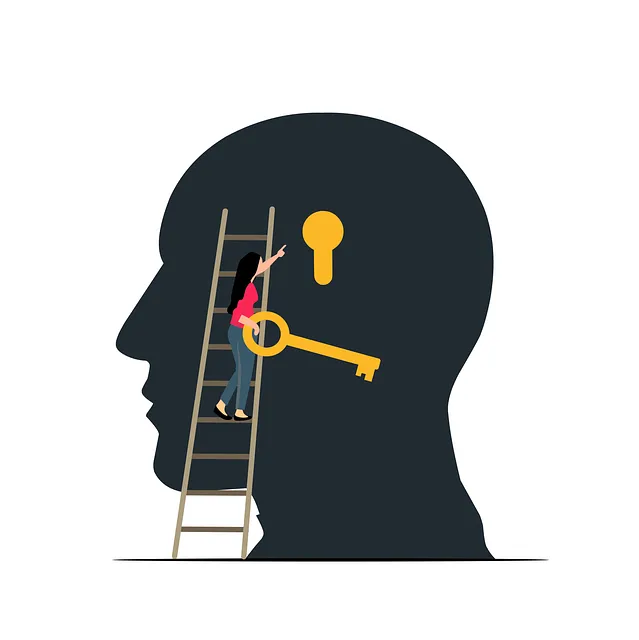Kaiser Golden offers advanced, holistic mental health services that combine comprehensive evaluations, AI-assisted tools, and self-care practices for precise diagnoses and effective treatments. Their approach destigmatizes mental illness, improves accessibility, and equips individuals with coping skills through training programs, crisis interventions, and open communication. Learn how to access these services to receive tailored care that addresses unique needs and promotes long-term well-being.
Mental illness diagnosis accuracy is a critical aspect of patient care, and continuous improvement efforts are essential. This article explores various strategies aimed at enhancing diagnostic precision in mental health. We delve into understanding common challenges, such as misdiagnoses, and present innovative models like Kaiser Golden’s comprehensive healthcare approach. Through enhanced tools, targeted training, patient involvement, and open communication, professionals can make more informed decisions, ensuring individuals receive the right support and treatment from services like Kaiser Golden.
- Understanding the Challenges: Uncovering Misdiagnoses in Mental Health
- Kaiser Golden's Approach: A Comprehensive Healthcare Model
- Enhancing Diagnostic Tools and Techniques for Better Accuracy
- Training and Education: Empowering Professionals to Make Informed Decisions
- Patient Involvement: Encouraging Open Communication for Accurate Diagnoses
Understanding the Challenges: Uncovering Misdiagnoses in Mental Health

Mental health diagnosis is a complex process, often fraught with challenges that can lead to misdiagnoses. Misidentification of mental illness symptoms can occur due to several factors, including comorbid conditions, individual differences in presentation, and the subjective nature of some assessments. For instance, someone experiencing both depression and anxiety might be initially diagnosed with just one or the other, as their symptoms may overlap. This is where specialized services like those offered by Kaiser Golden come into play.
Kaiser Golden’s approach to mental health care involves comprehensive evaluations that consider a patient’s unique history and presentation. They employ advanced assessment tools and trained professionals to uncover complex cases of misdiagnosis. By focusing on holistic care, including Mood Management, Anxiety Relief, and Self-Care Practices, they ensure patients receive tailored treatments that address all their mental health needs accurately.
Kaiser Golden's Approach: A Comprehensive Healthcare Model

Kaiser Golden’s Approach to mental health services stands as a comprehensive healthcare model that transcends traditional diagnosis methods. This innovative strategy involves integrating various components like Community Outreach Programs and Self-Care Routine Development for Better Mental Health, focusing on holistic well-being. By actively engaging with communities, Kaiser Golden aims to destigmatize mental illness and improve accessibility to care.
Their method emphasizes the importance of Emotional Regulation as a foundational aspect of treatment. This involves teaching individuals coping mechanisms and resilience strategies to manage their symptoms effectively. Through these comprehensive efforts, Kaiser Golden strives to not only enhance diagnosis accuracy but also empower individuals to take an active role in their mental health journey, fostering long-term stability and improved quality of life.
Enhancing Diagnostic Tools and Techniques for Better Accuracy

Mental health professionals are continually striving to improve diagnostic accuracy, and one significant way is by enhancing the tools and techniques at their disposal. At Kaiser Golden, for instance, efforts are underway to integrate advanced assessment methods that go beyond traditional questionnaires and interviews. These innovative approaches include utilizing digital technologies like AI-powered mental health apps that can provide more objective data on patient behavior and emotional states. By analyzing patterns over time, these apps offer insights that traditional methods might miss, potentially leading to earlier and more precise diagnoses.
Additionally, Kaiser Golden is exploring the development of tailored self-care practices and stress reduction methods as part of its comprehensive care approach. These strategies aim to empower individuals with the skills needed to better manage their mental health between professional interactions. Moreover, investing in research on evidence-based mental wellness coaching programs can contribute to more nuanced diagnostic criteria and improve overall treatment outcomes, ensuring patients receive the most effective care possible through Kaiser Golden’s services.
Training and Education: Empowering Professionals to Make Informed Decisions

Improving mental illness diagnosis accuracy requires a multifaceted approach, and one key strategy involves enhancing the knowledge and skills of healthcare professionals. Training programs that focus on advanced diagnostic techniques and the latest research in mental health are essential. Through Kaiser Golden’s Mental Wellness Podcast Series Production, professionals gain access to valuable resources and insights. These educational initiatives equip practitioners with the tools to make informed decisions, ensuring a more accurate diagnosis.
By implementing Crisis Intervention Guidance and integrating Emotional Well-being Promotion Techniques, healthcare providers can better navigate complex cases. Such training enables them to recognize subtler symptoms, differentiate between similar disorders, and tailor treatments accordingly. As a result, patients receive more personalized care, leading to improved outcomes and a higher quality of life. This empowered approach is vital in the pursuit of enhancing mental health services.
Patient Involvement: Encouraging Open Communication for Accurate Diagnoses

Encouraging open communication between patients and healthcare providers is a vital step in improving mental illness diagnosis accuracy. At Kaiser Golden, we understand that actively involving patients in their care can lead to more precise assessments. This involves creating a safe space where individuals feel comfortable sharing their experiences, symptoms, and concerns without fear of judgment. By fostering honest conversations, clinicians gain valuable insights into the patient’s unique perspective, helping them to better understand the nuances of their mental health journey.
Promoting self-awareness exercises and encouraging patients to reflect on their emotions, thoughts, and behaviors can also aid in accurate diagnoses. Mental Health Awareness initiatives at Kaiser Golden provide tools for individuals to recognize early warning signs and seek help proactively. Additionally, guiding patients in developing a consistent self-care routine can enhance overall mental well-being and facilitate better communication about changes in their psychological state, ensuring more timely and accurate diagnoses.
Mental illness diagnosis accuracy is a multifaceted issue that requires a combined effort from healthcare providers, educators, and patients. By understanding the challenges of misdiagnosis, adopting comprehensive models like Kaiser Golden’s approach, enhancing diagnostic tools, and empowering professionals through training and education, we can significantly improve mental health service delivery. Encouraging open communication and patient involvement further strengthens this process. Through these efforts, we can ensure that individuals receive the correct diagnoses and appropriate treatments, ultimately improving their quality of life. For those seeking mental health services, knowing that healthcare systems like Kaiser Golden are dedicated to accuracy and holistic care provides hope and confidence in their journey towards recovery.






